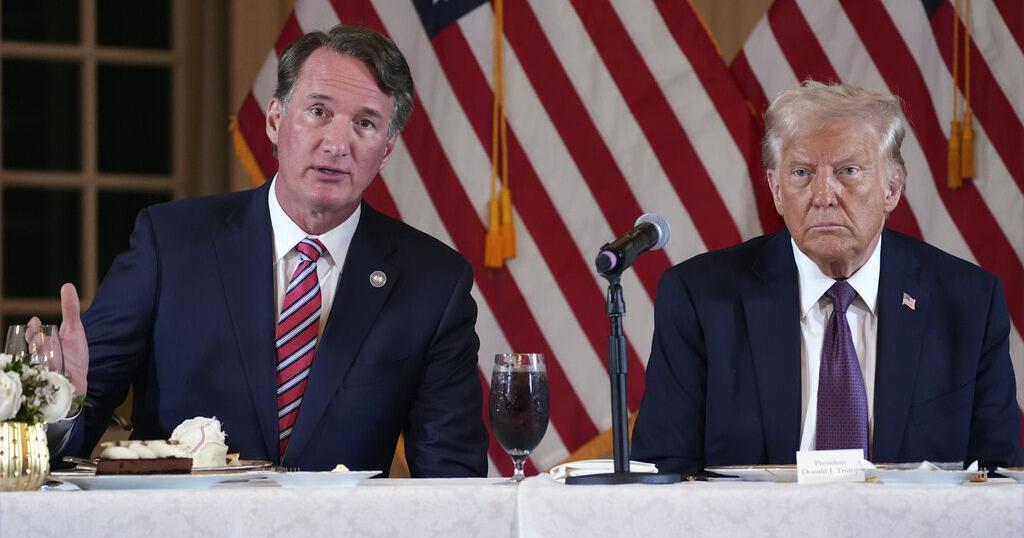How Will Virginia Lawmakers Navigate Rising Costs and Revenue Decisions in the Budget?

Published: 2025-09-13 10:15:00 | Category: policy GNEWS Search
Virginia lawmakers are facing significant challenges as they navigate a complex fiscal landscape, exacerbated by federal tax policies that may shift costs to the state. The implications of the "One Big Beautiful Bill Act," signed by President Trump, could lead to substantial reductions in federal funding for essential services such as Medicaid and food assistance, forcing state legislators to make tough decisions about tax policy and public service funding.
Last updated: 29 October 2023 (BST)
Key Takeaways
- Virginia faces over $2 billion in expected bills amid federal funding cuts.
- The "One Big Beautiful Bill Act" could significantly impact state revenues and services.
- Health care providers are bracing for cuts in Medicaid reimbursements.
- Lawmakers may consider new tax policies to cover service costs.
- The economic outlook remains uncertain amid rising unemployment and federal workforce cuts.
The Impact of Federal Tax Policy on Virginia
The recent federal legislation, known as the "One Big Beautiful Bill Act," has introduced sweeping changes to tax policy that could profoundly affect Virginia's budget and its ability to fund vital services. The act includes approximately $1.2 trillion in cuts to federal spending, particularly impacting Medicaid and other safety net programmes that many Virginians rely on.
As Virginia prepares for its financial future, the state is grappling with how to adjust its tax policies in response to these federal changes. The state budget is already under strain, with the General Assembly expected to make critical decisions that could redefine its fiscal strategy.
Challenges Ahead: Health Care and Education Funding
Among the most pressing issues is the anticipated reduction in Medicaid funding. With health care providers like Augusta Medical Group planning to close clinics due to an expected $40 million cut in Medicaid funds, the ramifications for public health are severe. Former Virginia Secretary of Finance, Aubrey Layne, outlined the stark choices that lie ahead: fewer people covered, fewer services provided, or reduced reimbursements for services rendered.
The Virginia General Assembly's money committees are still awaiting precise estimates for K-12 education and Medicaid costs, but preliminary figures indicate a staggering £1.75 billion need over the next two years. Additionally, the Trump tax legislation shifts part of the burden for food assistance under the Supplemental Nutrition Assistance Program (SNAP) to Virginia, potentially costing the state an additional £360 million annually.
The Economic Context: Job Market and Employment Trends
Virginia's economy is facing increasing pressure, with the unemployment rate rising for seven consecutive months, although it remains lower than the national average. Governor Glenn Youngkin's outlook remains optimistic, citing a revenue surplus of £572 million for the fiscal year ending June 30 and additional available revenues. However, Democratic lawmakers express skepticism about whether these funds will be sufficient to meet the state's obligations and maintain critical services.
The uncertainty in the job market, exacerbated by federal policies, leads many to question the sustainability of Virginia's economic health. As significant cuts loom, lawmakers are exploring alternative revenue sources, including potential taxation of a newly legalised cannabis market or expanding sales taxes to additional services.
Potential Policy Responses: Taxation and Budget Priorities
As the legislature prepares to convene, discussions around tax policy will be paramount. House Finance Chair Vivian Watts has indicated a focus on examining the tax implications of the Trump tax bill, particularly concerning business expense write-offs that could significantly impact state revenues.
Meanwhile, the question of taxing cannabis sales continues to be a contentious issue. Critics argue that the state could be missing out on substantial revenue from a regulated cannabis market, with House Majority Leader Scott Surovell highlighting that more than £1 billion in potential revenue has been overlooked during Youngkin's governorship.
What Happens Next? Legislative Outlook and Community Impacts
As Virginia lawmakers prepare for a pivotal session in January, the outcomes of their deliberations will have lasting implications for the state's budget and the services that residents rely on. With the General Assembly set to consider Governor Youngkin's proposed budget, the tension between maintaining essential services and addressing potential revenue shortfalls will be at the forefront of discussions.
The need for a cohesive strategy that balances fiscal responsibility with the needs of Virginia's most vulnerable populations is critical. Lawmakers will have to make challenging choices that will shape the state's welfare infrastructure and economic future.
FAQs
What is the "One Big Beautiful Bill Act"?
The "One Big Beautiful Bill Act" is a federal law signed by President Trump, which includes significant tax cuts offset by cuts to federal spending on programmes like Medicaid and food assistance.
How will Medicaid funding be affected in Virginia?
Virginia is expected to face major cuts in Medicaid funding, potentially leading to reduced services, fewer people covered, and increased pressure on healthcare providers.
What are the implications of the federal tax cuts for Virginia's budget?
The federal tax cuts may reduce state revenue by over £1 billion, complicating the ability of Virginia lawmakers to fund essential services and meet public needs.
What new revenue sources are Virginia lawmakers considering?
Lawmakers are considering potential new revenue sources such as taxing cannabis sales and expanding the sales tax to include certain services, which could help offset budget shortfalls.
What is the current economic outlook for Virginia?
While Governor Youngkin cites a positive economic outlook, rising unemployment and federal workforce cuts pose significant challenges, leading to concerns about the sustainability of Virginia's economic health.



